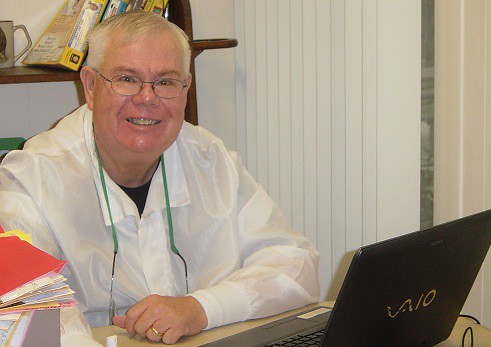
Good Morning!
On to today's dentistry and health headlines:
Study of the Day: Cold Can Help Runners Recover From Exercise
American Diet Gets Failing Grade
Colo. dental care firm leverages nonprofit loophole
As Doctors Use More Devices, Potential for Distraction Grows
Enjoy your morning!
On to today's dentistry and health headlines:
Study of the Day: Cold Can Help Runners Recover From Exercise
Whole-body cryotherapy in extreme temperatures repairs athletes' damaged muscles much faster than radiation or rest, new research shows
RESULTS: Whole-body cryotherapy, wherein the participants were exposed to temperatures as cold as -166°F, was the most effective recovery aid. One session conducted one hour after exercise enabled the runners to gain back maximum muscle strength much faster than the other strategies. Three sessions performed after 48 hours also accelerated recuperation more than the other two methods over the same time period.
CONCLUSION: Athletes benefit more from cryotherapy than from exposure to far-infrared radiation or no treatment. Hausswirth explains in a statement that this method enhances "post-exercise recovery in well-trained runners by limiting the maximal force loss and sensations of pain."
American Diet Gets Failing Grade
Americans are still falling short of national dietary recommendations, eating too many sweets and not enough vegetables and whole grains, according to the CDC.
On a national healthy-eating index that measured compliance with U.S. dietary guidelines from 2005, the average overall diet score was only about 60 points out of 100 -- "indicating Americans' diets need improvement," Bethene Ervin, PhD, RD, wrote in a National Health Statistics Report.
The Healthy Eating Index, or HEI-2005, assesses specific intake of various nutritional categories, including whole fruits, dark green and orange vegetables, whole grains, milk, meat and beans, oils, fats, sodium, alcohol, and added sugar.
To come up with the estimates, Ervin looked at data on 4,448 adults ages 20 and up from the National Health and Nutrition Examination Survey (NHANES) 2003-2004.
She found that American adults were well below the maximum standard for all the HEI-2005 component scores except for total grains and meat and beans.
Colo. dental care firm leverages nonprofit loophole
Colorado law, like in most states, specifies that only licensed dentists can own or control dental practices in order to protect doctor/patient relationships and ensure that decisions are made based on patient care, not corporate profits.
But when state officials last year shut down HomeCare Dental Services, which had been providing dental care services to 70 nursing homes in the Denver area, owner and nondentist Ken Kucera took advantage of an exemption in the Dental Practice Act that allows nondentists to own dental practices if they are nonprofits.
Kucera reregistered his company as Visiting Ancillary Services, a nonprofit that also provides dental care to nursing homes. But he insists it isn't a dental practice.
As Doctors Use More Devices, Potential for Distraction Grows
Hospitals and doctors’ offices, hoping to curb medical error, have invested heavily to put computers, smartphones and other devices into the hands of medical staff for instant access to patient data, drug information and case studies.
But like many cures, this solution has come with an unintended side effect: doctors and nurses can be focused on the screen and not the patient, even during moments of critical care. And they are not always doing work; examples include a neurosurgeon making personal calls during an operation, a nurse checking airfares during surgery and a poll showing that half of technicians running bypass machines had admitted texting during a procedure.
This phenomenon has set off an intensifying discussion at hospitals and medical schools about a problem perhaps best described as “distracted doctoring.” In response, some hospitals have begun limiting the use of devices in critical settings, while schools have started reminding medical students to focus on patients instead of gadgets, even as the students are being given more devices.
Enjoy your morning!
No comments:
Post a Comment